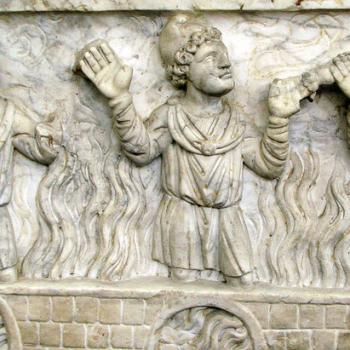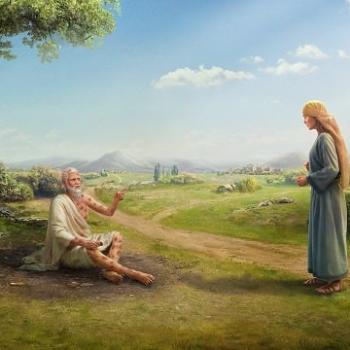
What in the World is Going On?
The New Creation seems impossibly elusive. Go to any news outlet these days, and you will find yourself bombarded with a seemingly unending stream of stories that spotlight the worst of human existence on earth. Mass shootings, growing economic concerns, a war in Ukraine and an unending pandemic occupy our minds. Growing up in the ’70s and ’80s, I’ve experienced my share of bad news. One of the most shocking news stories from my teenage years came across the loudspeaker during my lunch break in Junior High School. Seven astronauts, including a teacher, perished as the Space Shuttle Challenger exploded just 73 seconds into launch. That cold morning of January 28, 1986, somehow changed our collective psyche to diminish the hope of a brighter future.
Pain and the New Creation
Our senses warn us when something is off. Place your hand near a fire, and your motor reflexes kick in to pull your hand away. Our bodies instinctively protect us from harm. White blood cells and platelets begin the healing process when our skin bleeds. We can only take so much bad news before we instinctively unplug. Others respond to the world around them by getting involved to better their situation. We give, march, demonstrate and voice our opinions. I propose something greater than ourselves stirs our imaginations toward a new hope. John, writing to a persecuted church, reminds them of future hope. This hope is the New Creation we also long for, especially in these dark days.
Answers from Ancient Philosophers
How did the early philosophers approach the world’s problem of pain and tragedy? The early Stoics interpreted the world in the structure of a well-ordered and rational system. Stoicism permeated Roman society and emphasized natural law as the governing force behind everything. Epictetus recognized that a well-ordered universe does not always translate to a trouble-free existence for human beings. According to him, providence dictates that humans have every resource available to persevere through trials and even face death courageously. Our passions, desires, and emotions, whether good or bad, were thought to be irrational and were to be controlled by reason. Rational judgment allows one to live a well-ordered life. However, to the Stoic, this world is all that exists.
Paul’s Rebuttal Leads to the New Creation
The New Testament reflects a culture saturated in Stoic philosophy. Paul, in Romans 1, speaks of those whose unbridled sexual passion in the form of homosexual acts distorted their reasoning. Like an excellent Stoic, Paul seems to reject desire. However, he only denies misguided desire. Unlike Stoicism, the New Testament teaches that God is the One who orders the cosmos. God is the judge of right and wrong behavior. God is the God of reason and emotion. Paul, in Acts 17, used the prevailing philosophies of his day to engage with the people of his time. He could bridge the gap between their pagan understanding of the world – the old creation – and their longing for something else, as evidenced in their worship of idols. Paul skillfully moves his readers toward a new creation by introducing them to their creator.
Two Responses to a Broken World
There are three primary ways many respond to the broken world around us – albeit nuanced. The first way we may react is through despair and the abandonment of any hope for an improved situation in this world. One form of this thinking is to retreat from engagement with the culture. In many ways, we see this played out in the church in early 20th-century fundamentalism and its characteristic dispensational view of eschatology. Another form may tragically leave one to abandon all hope for this life leading to suicide. A second way we respond to the world is to accept the fate the cosmos has ordered and divest ourselves as best we can of emotions, passions, and desires. This approach seeks to live harmoniously with the pain of this life. Finally, like the Stoics, we seek rationalism as a path forward and utilize any method to grin and bear it.
The New Creation as a Third Way
A third way of responding to the world focuses on the path to the New Creation. My purpose in writing this blog is to present this way of looking at the world around us – its goodness and brokenness – through the lens of Scripture. Unlike much of the general commentary on the human condition, I propose exploring our world in light of the reality that God is making all things new. Therefore, our engagement does not merely restrict itself to push through the best we know how but engages our world thoughtfully and with the conviction that creation as we know it is under God’s transformative care. This transformation began with the incarnation of Christ and the inauguration of His Kingdom on earth. I hope you may find renewed hope and joy in life as we explore what it means to live on this path to the New Creation.












